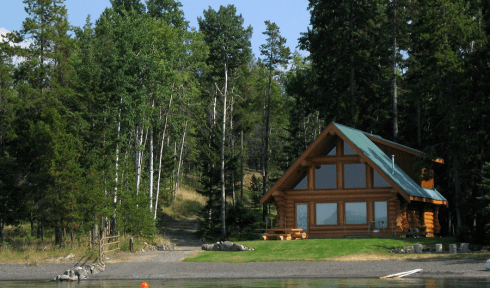Realty Biz News
Urbanites flee to suburbs, country in light of the pandemic
August 27, 2020
In this peculiar era of social/physical distancing and avoiding crowds, it should probably come as no surprise that many city-dwellers are thinking of chucking city life for either the suburbs or the country.
According to the Toronto Sun, “nearly three in five people say living in a rural area is more appealing to them now than before the pandemic,” and the same percentage “say the same thing about living in the suburbs.”
“I think it’s too early to predict if it’s going to be a long-term trend or not…but we have all been locked up in our houses during COVID-19 and have had a lot of time to sit around and evaluate what’s important to us and we’re starting to see that shift outside of the major urban centres,” states Sean Morrison, president of the Ontario Real Estate Association, in the Sun article.
The article goes on to point out that it’s not just about avoiding crowded cities – the “work from home” aspect of the pandemic has also made getting a larger yard and perhaps a bigger house more attractive.
Commenting on the similar trend south of the border, Zillow’s Chief Economist Joshua Clark says the pandemic is at play in other ways.
Speaking to Realty Biz News, Clark notes “it may be tempting to conclude that urban renters who have been cooped up without outdoor space and unable to visit their favorite local bar are ready to commit to suburban life, and that is likely true for many. But that narrative ignores the job loss that has hit renters, who are disproportionately employed in the industries most affected, and has likely played a bigger role in recent moves.”
So those who were renting in the city may now only be able to afford to rent somewhere farther from the downtown core, he explains.
The Simple Dollar blog looks at the core question of whether or not it is truly cheaper to live outside of a city in a suburb or rural setting. Buying a house, the blog reports, “can cost twice as much in the city versus the suburbs.” However, cities offer the best public transit, and groceries tend also to be cheaper downtown, the blog adds.
If you live far away from where you work, beware the perils of commuting, the blog warns.
“This means that if you are returning to your place of work from your home in the suburbs or a small town, you could be back to spending a great deal of time, money and stress sitting in traffic, which can take a toll on your health; Scientific American recently noted that long-distance commuters could suffer from physical maladies, including headaches and backaches, along with mental issues, ranging from sleep disturbance and fatigue to concentration issues,” the blog reports.
As one who has lived in the downtown of a major city, the suburbs, and in small towns in Ontario and Alberta, this writer can attest to the importance of the last point raised by Simple Dollar. A long commute to work – sometimes it can be hours each way – really takes it out of you. While most of us are working from home, that may not be the case forever – so think long-term if you are planning to move farther away from your place of work. If there’s a way to get to work without driving, that makes the suburban or rural property much more attractive.
You don’t have to travel to Kindersley, Sask. to open up a Saskatchewan Pension Plan account. Whether you’re downtown, flipping burgers in the ‘burbs or surveying your pasture, you can connect with SPP online to see if this plan is an option for you. Once you’re a member, you can use MySPP to track the balances of your retirement accounts – all from the comfort of home.
Join the Wealthcare Revolution – follow SPP on Facebook!
Written by Martin Biefer

Martin Biefer is Senior Pension Writer at Avery & Kerr Communications in Nepean, Ontario. A veteran reporter, editor and pension communicator, he’s now a freelancer. Interests include golf, line dancing and classic rock, and playing guitar. Got a story idea? Let Martin know via LinkedIn.
